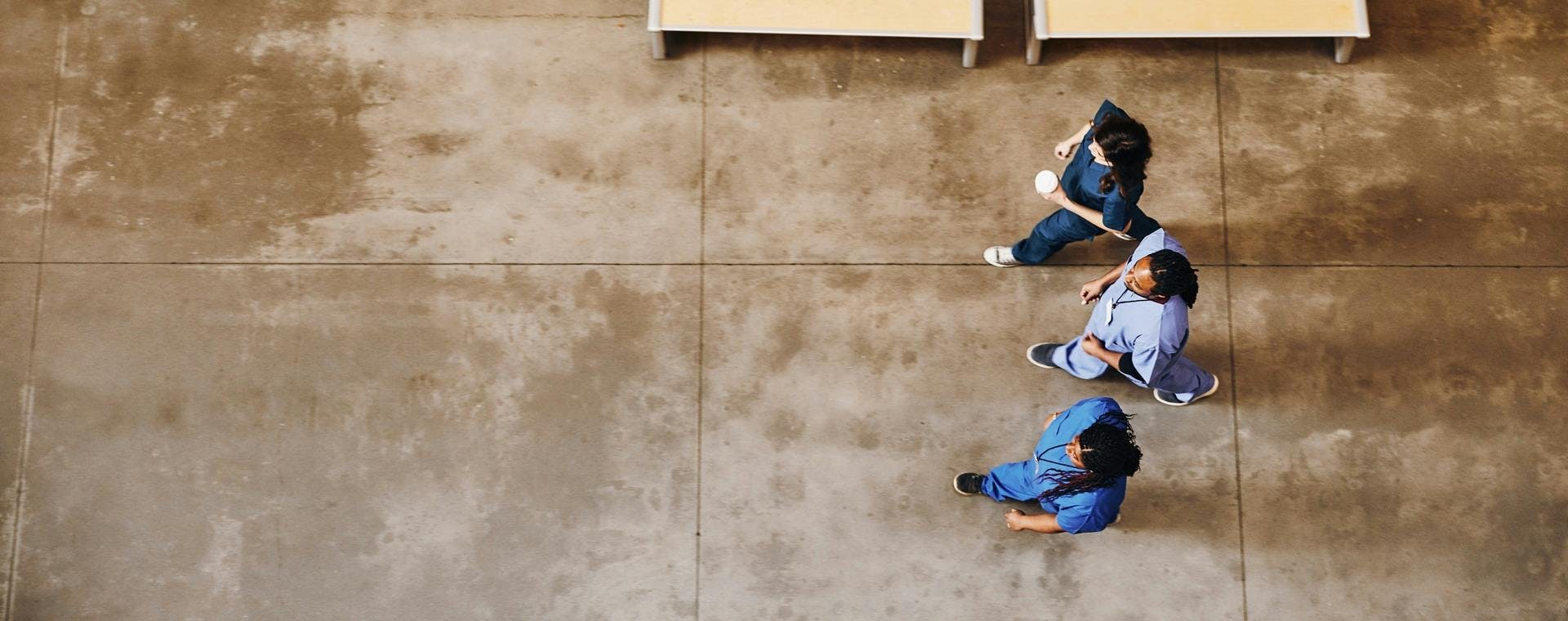Dental infection compensation

Suffering unnecessary pain at the hands of a dental practitioner can be a traumatic experience. This is especially true when coupled with the fact that many people are already anxious about visiting their dentist. Dentists, orthodontists, dental hygienists and other practitioners have a responsibility to deliver the highest standards of care, and when they fail to meet these standards, the consequences can be devastating for patients.
Dentists must take steps to reduce the risk of patients acquiring infections while in their care. The potential consequences of an infection - including toothache, abscesses, ulcers, and even the loss of teeth - can be extremely painful. A failure in dental care can also affect your confidence in your appearance or have even more severe outcomes.
In these cases, patients may be entitled to make a claim for dental infection compensation. If you received substandard care from a dentist that led to an infection, it’s important to take action. By bringing a claim, you can highlight the failings of the person responsible and help to make sure that other people don’t suffer in the same way as you in the future. Meanwhile, compensation can cover the costs of any corrective treatment you may need, and recover any loss of earnings if you had to take time off work during your recovery.
To learn more about making a claim and get the process started, speak with the dental negligence solicitors at Switalskis today.
Call us on 0800 1380 458 or get in touch through the website, and we can advise you on the options that can help you to move forward.

Making a claim following a dental infection can be daunting. However, with Switalskis in your corner, you can feel confident in your pursuit of justice. We’ll stand by your side throughout the process and support you every step of the way.
Members of Switalskis’ medical negligence team have been recognised for the quality of their service by the Law Society and AvMA (Action Against Medical Accidents) . We’re committed to providing a personal service that is led by each client's individual needs. That means we take the time to listen and understand what you want to achieve, so that we can support you in pursuing the outcome that you’re looking for.
Thanks to our extensive experience in this area, we’re highly skilled at investigating these types of claims and building a strong case. We know how to find the evidence you need and ask the right questions. If we take on your case, we’ll work to demonstrate that your dentist’s negligence was the cause of your infection and secure the maximum amount of compensation that you’re entitled to claim.
Dental professionals have a responsibility to minimise the risk of infection. This means using equipment that has been sterilised properly, keeping work surfaces clean, performing surgery and treatment to a high standard and providing appropriate aftercare instructions to help patients heal correctly.
A failure in any of these responsibilities could lead to infections and conditions including:
If you have experienced any of the above after treatment by a dental practitioner, you may have been the victim of dental negligence. However, these are not the only examples. If you feel that you may have been subject to negligence by your dentist, get in touch with Switalskis. We’ll be able to discuss your situation and let you know whether your treatment amounts to negligence. From there, we can discuss the possibility of claiming compensation and get the process started for you.
Everyone’s circumstances are different, and each clinical negligence claim will progress in a slightly different way. However, there are key milestones in the development of a claim that will always remain the same. To help you understand what to expect from the process, we’ve outlined the key steps below.
Reach out to Switalskis for a free, no-obligation initial consultation. During this meeting, we’ll listen to your story, understand your concerns and explain whether we think you have a strong case. If we decide to proceed, we can then discuss the next steps and the available funding options.
We’ll gather all of the relevant information we need to build your case. This will include applying for your medical records, including your dental records. We’ll ask you for photographs, receipts and any other documents that may support your claim. We will take detailed witness statements to tell your version of events. We may arrange for you to be assessed by an independent medical expert to provide an unbiased view of your injuries and future prognosis. The aim will be to prove the negligence was responsible for your injury and consider the potential value of the claim.
Once we have supportive evidence, we’ll send a letter of claim to the dental professional and/or treatment centre involved. This letter will outline the details of the claim and state your allegations regarding the negligent treatment.
After sending the letter of claim, the defendant has four months to investigate the allegations made against them and respond to them in a letter, which is known as a letter of response. The response letter will include whether the defendant accepts they’re at fault, which is called an admission of liability. If they don’t accept fault, they will state this and this is known as a denial of liability. We’ll advise you of the next steps at this stage.
If the defendant or dental practice has admitted fault, negotiations can start. Our dental negligence solicitors will negotiate on your behalf, using our expertise and experience to secure the highest possible amount of compensation for you. At this stage, we will discuss how much compensation you may receive. This will be calculated to cover the pain and suffering caused by the dental negligence you experienced, as well as any financial losses or expenses you’ve experienced as a result, along with compensation for any future treatment and rehabilitation you may need.
Most claims will be settled through negotiation, without needing to go to court. In the rare instances where the claim does go to trial, you can trust us to represent you throughout the process.
The time it takes to make a claim, from your first call to the day you receive your compensation, can vary greatly. If the negligent party accepts liability straight away, the case may conclude within a year. If the case proceeds to court, this will take longer. On average, claims are settled in around 18 to 24 months. No matter how long it takes, Switalskis will remain steadfast in our commitment to securing the compensation you deserve.

In most cases, you have three years from the date that you experienced dental negligence to start a compensation claim. Sometimes, this three-year limitation period begins instead from the date that you realised that your infection was the result of dental negligence. There are occasional exceptions to this time limit, particularly for cases where the following factors play a role:
The court may grant further exceptions to the three-year limitation period, but only in extremely rare circumstances. If you are unsure about your eligibility to make a claim, then get in touch with Switalskis today to discuss your options.
At Switalskis, we believe that everyone has a right to pursue justice. We want to make sure that no one is put off from claiming compensation that they’re owed because they fear having to pay legal fees. There are several options available to our clients that minimise any financial risk, and help them to avoid worrying about what will happen if their claim is unsuccessful.
When you call Switalskis to discuss your circumstances, we’ll talk about the different options that are available. That way, you can choose the one that works best for you and enjoy peace of mind while we work on your behalf.
Compensation is broken down into two types of damages:
General damages account for the experiences you went through as a result of your infection, and will usually include compensation for:
Special damages compensate victims of negligence for any financial losses they experienced, or will experience in the future, due to the infection. This often includes:
There are many different factors that might need to be considered when calculating how much compensation you’re owed. This is just one reason why it’s so important to choose the right solicitor to represent you through this process. The team at Switalskis know the right questions to ask and will always negotiate steadfastly on your behalf to make sure you receive the maximum amount of compensation to which you’re entitled.
Contact us today and let's start your journey towards recovery together. Call us today on 0800 1380 458,or get in touch via our form.
The team at Switalskis knows how difficult it can be to deal with an infection that arises after negligent dental treatment. No matter the outcome of your treatment or injury, you may be owed compensation if you acquired an infection due to your dentist’s failures, and it is important to make a claim in order to put things right.
At Switalskis, we’re committed to providing expert legal advice and support to all of our clients throughout the claims process. To make sure that we provide a high level of service in each and every case, we make the following commitments:
The legal process can be confusing and filled with unclear terminology. We prioritise communication, and we’ll work with you to make sure you understand everything, clarifying legal and medical jargon in simple terms and answering your questions. Switalskis’ team will make sure you always know how your claim is progressing and what your rights and responsibilities are.
With our experience in dental negligence claims, we’ve seen the far-reaching effects that a dental infection can have. To us, you’re not just a case number: you’re a person dealing with the emotional and physical consequences of someone else’s mistake. We’ll help you by providing the support and resources you need, alongside the high standard of legal advice we’re known for.
Our medical negligence team has been recognised as one of the leading teams in the country by The Legal 500. With many years of experience in making dental infection claims, we know what to expect and how to build a case that will give you the highest chances of success. This takes the burden off your shoulders and allows you to focus on your recovery, while we push forward on your behalf towards a positive resolution.
When you suffer harm because of a dentist’s mistake, claiming compensation is your right. This isn’t just about money - it’s about getting people to admit their mistakes and learn from them so that the situation you face never needs to happen to anyone else. In Switalskis, you’ll have an ally who’ll fight by your side and amplify your voice at every stage of the process to make sure you’re seen and heard.
A dental infection caused by negligence can have a serious impact on your life and a compensation claim may be the only way to help get things back on track. Even if you feel ready to move on, making a claim can help prevent similar (or worse) infections from happening to other people in the future.
Contact Switalskis for a free initial chat about your situation and find out whether you can make a claim. Call us on 0800 1380 458 or get in touch through the website today.